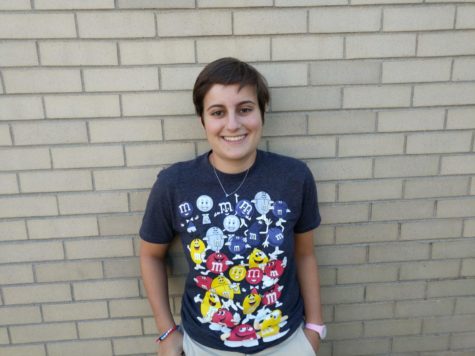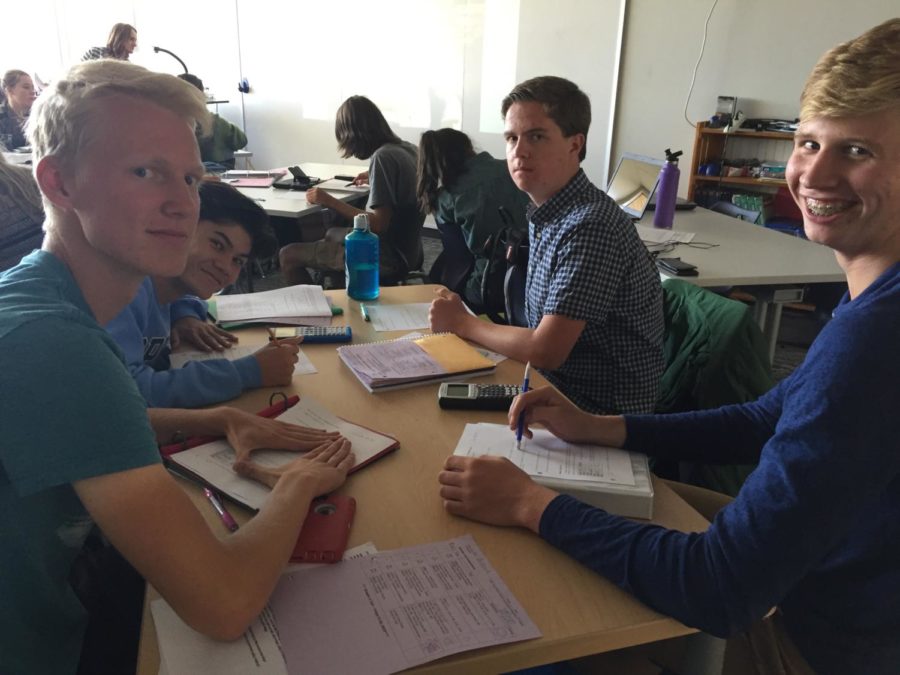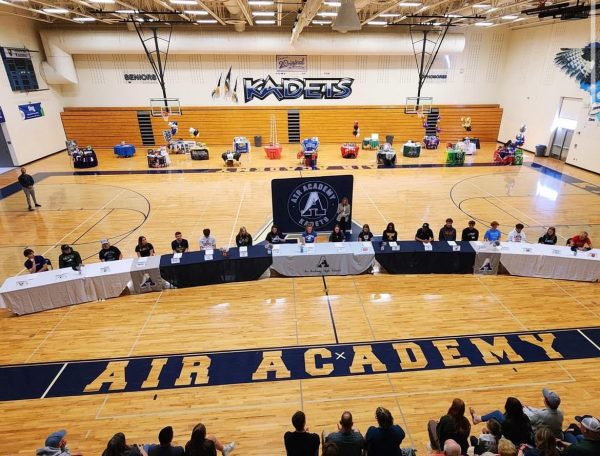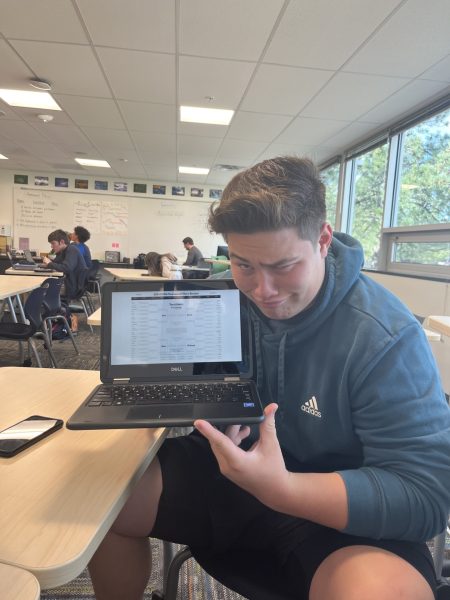The AP Problem: What’s Up With AP Exams This Year?
It’s that time of year again: an intimidating autumn sharpness begins to occupy the air, leaves begin to fall and classes pick up pace as students nation-wide start to look toward the fast-approaching AP exams in May.
The Advanced Placement, or AP program, is designed to bring college rigor to the high school classroom. In AP classes, students have the opportunity to take a national, standardized test at the end of the year for college credit. The exam is scored on a five point scale with a score of a three being considered the minimum for passing. AP tests are timed, typically spanning about three hours depending on the subject and including multiple choice and written sections.
Needless to say, AP exams are nationally recognized as highly demanding and difficult.
Air Academy High School offers a wide range of AP classes, that much is certain. However, where the exams are to be taken proves to be a point of controversy.
In previous years, the exams were administered in the library. But, last year, when the library was under-construction, Air Academy High School students took the exam at check-printing facility Checks Unlimited. Although taking the tests off-site is normal for many District 20 students, as several schools in district have been handling AP testing this way for years, AAHS students seemed to find the off-site experience to be inconvenient and cumbersome as compared to their experiences taking the exams in the AAHS library.
Senior Sam Brooks is currently taking five AP classes. However, he explained that he “so vehemently hates Checks Unlimited that [he] decided not to take a single AP test this year.”
Brooks attributed this strong negative impression to the “big space” that “feels so hostile,” as well as the fact that the process “takes a lot longer” due to the large population of students.
“Since [the facility] is so big and there’s usually only one proctor [speaking], people in the back can’t hear the instructions,” pointed out senior Nidhi Unnikrishnan.
As for the potential effects the new environment may have had on her performance, Unnikrishnan stated, “It made me do worse on the test.”
Senior Natalie Hummel said that during the calculus BC exam “[she] could not see the clock,” which made it difficult for her to pace herself during the exam.
Harboring a more moderate opinion, senior Justin Brand found the location to be “not bad, but inconvenient” and the process as a whole felt more “monotonous” and robotic than taking the exams at school. He felt there was likely some added stress due to the fact that Checks Unlimited was an unfamiliar place which he described as “eerie.”
Indeed, studies have shown that students tend to preform better in familiar places closer to where they learned the information they are being tested on. As AP statistics teacher Katie Uebelhoer stated, “Studies have shown you do better on a test if it’s in the environment you studied in.”
Administrator Sean Whitson weighed in on the grievances students have with Checks Unlimited, acknowledging that AAHS students were “very fortunate to have that space [the library] and be able to utilize that space for as many years as we did.”
However, he stated that due to recent remodeling, AAHS is no longer able to accommodate the number of students taking AP tests in the new library.
“Now that the library has been redesigned and re-configured, it doesn’t have the same kind of space that it used to with regards to testing,” Whitson explained.
Whitson also elaborated that AP testing at school interrupted and inconvenienced many teachers and students in the AAHS community.
“Two weeks of testing…really does take away from the rest of the school and other teachers who want to use that space.”
He concluded that, “we are currently looking at the same space [Checks Unlimited]… for AP testing.”
Compounded with the controversy regarding the site of AP exams, senior AP statistics students are facing another obstacle. AP statistics is one of the most commonly taken AP classes for seniors, which is why students were frustrated to find that, for the second year in a row, the exam date conflicts with graduation. Seniors interested in taking the exam to gain college credit for the class are now forced to return to school after graduation to take the exam on its make-up date.
“Right now I am hesitant to take the exam [due to the conflict with graduation],” said Brand.
Because of this inconvenience, many seniors like Brand are left questioning whether they should take the AP statistics exam at all, to the dismay of their teacher Katie Uebelhoer.
Uebelhoer described the entire situation as “honestly…really frustrating.”
“After last year [the conflict with the exam and graduation] definitely should have been on their [the school’s] radar…I tried to get them to come up with other options, to problem solve so it wouldn’t happen again. And it’s the same this year. Nothing changed.”
Uebelhoer feels that this problem’s effects goes far beyond mere inconvenience and not only detriments the number of students she has take the test, but also their scores.
“Only 25 percent [of the statistics students] took the test, and usually… 75-80 percent take the test,” she explained.
“Nobody wants to come back the week after graduation.”
She also felt that, of the ten students who took the test, “at least three of them I was absolutely certain…would get a score higher than what they ended up getting. I think it’s because it had been basically two weeks since we’d done any content, a week since they’d been in school. So, of course you’re not going to do as well.”
Ultimately, Uebelhoer indicated that, in order to solve the problem, the District 20 schools should rotate the date around each year so that no one school’s statistics program is consistently hurt by the conflict.
In response to this glaring issue, Whitson assured that the school is working on “switching [graduation dates] with another school” or “rotating through.” He is “hoping that after this year, the rotation goes through and we can accommodate for those [statistics] tests.”
Whitson also emphasized that “We [AAHS administration] want to try to do the best we can for every Air Academy student that takes an AP exam…we try to support.”
For now, at least, it seems that AAHS students will have to wait to see how the AP statistics scheduling problem will be addressed.
As for the complaints regarding Checks Unlimited, AAHS has not tested off-site since the late 1980’s and was one of the few remaining schools to persist with testing on-site, so such a drastic change will take time to adapt to.

Hi! I'm Hillary; but, I go by Hill, Larry or anything in between. As a senior with a serious height deficiency, I won't take it too personally if you think...








